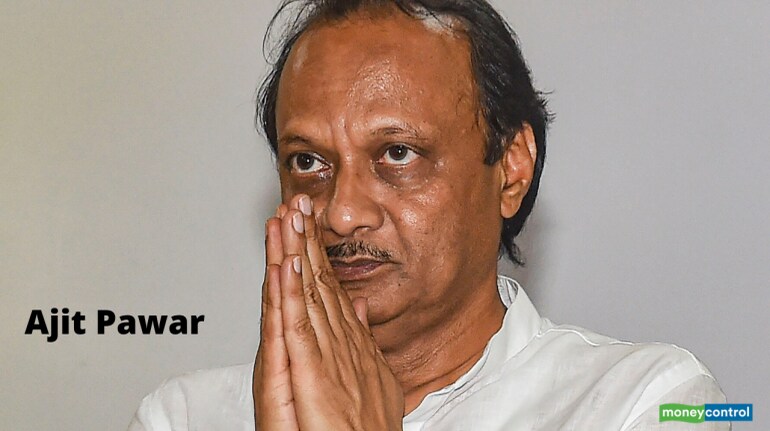



The BJP has taken a calculated risk by inducting the breakaway NCP faction led by Ajit Pawar in the Maharashtra government. It has done so despite the Shinde faction’s grouse against Ajit Pawar and the unenviable task of accommodating too many ambitious individuals.
But is there something about Ajit Pawar’s NCP faction and its political base that now makes it a more compelling ally for the BJP’s 2024 campaign than the Shinde Sena?
Defections: What History, Data Reveal
A historical data analysis using the TCPD-IED dataset of how defection-prone a party has been and the performance of defectors from the Shiv Sena and the NCP while contesting assembly polls is a good starting point.
From its founding in 1966 up to the 2019 polls, there were 64 defectors who left the Shiv Sena to join and contest elections on another party’s ticket. There’s a pertinent and oft-cited adage used to describe the Shiv Sena when Bal Thackeray was at the peak of his powers: The Shiv Sena is like a tiger’s den. You can only enter it but not exit it.
Data endorses this view. Until 2004, there were only 15 defectors from Shiv Sena who contested polls on another party’s ticket. By the mid-2000s, generational change had started setting in as an ailing Bal Thackeray slowly passed the baton to Uddhav Thackeray who became Sena’s working president in 2003.
Twenty-one of 49 Shiv Sena turncoats had left in the post-Bal Thackeray era. A Bal Thackeray effect was clearly at play: Not only did defections in the Shiv Sena rise in the post-Bal Thackeray period (2004 onwards) but even the winning strike-rate of Shiv Sena defectors went up considerably from 13 percent to almost 43 percent.
The Shiv Sena’s history of defections and performance of its defectors makes for an interesting comparison with the NCP. NCP is much more prone to defections than Shiv Sena. From 1999-2019, NCP has had almost the same number of defectors i.e. 61 as the Shiv Sena had from 1966-2019 (64).
65 percent of the overall tally of NCP deserters left for other parties between 2014 to 2019. This adds further credence to the theory of NCP being a party that needs to be in power to survive. The overall winning strike-rate of the NCP defectors at 41 percent is also higher than the overall strike-rate of 36 percent of Sena defectors.
While this may not seem significant, the bigger story gets revealed when we look at the performance of defectors in the last two assembly elections. BJP’s rise as Maharashtra’s numero uno party in 2014 set off a mass migration of leaders from different parties towards it.
With the TCPD-IED data, we calculated the winning chances of defectors leaving the NCP. We found that for NCP defectors, the chances of winning are 3.19 times higher than defectors of other parties. This raises two questions: Why is the NCP more prone to defections? Why are NCP defectors 3x more likely to win than defectors of other parties?
The Cooperative Pie
The answer to these questions lies in the vast network of cooperative institutions ranging from sugar mills, milk cooperatives, credit societies and fertiliser banks spread across the state especially in the NCP bastion of Western Maharashtra. These cooperatives have not only shaped the rural economy of Maharashtra but have had a great influence on the politics of the state.
Traditionally, these cooperatives were firmly in the hands of Congress stalwarts. But with NCP’s formation, the balance of power shifted. Local satraps of the NCP (and the Congress) not only gained financial muscle but also secured their electoral and political fortunes by maintaining control over these cooperatives.
A village which has not voted in favour of the local satrap who controls the cooperatives in the region would find it extremely difficult to sell its milk or sugarcane to the cooperatives or procure a loan through local credit societies. This politico-commercial nexus makes the voters completely dependent on these local satraps of cooperatives for their livelihood and forces them to vote for whichever party their local satrap migrates to.
While this tried and tested formula of clinching and consolidating power helped NCP grow in the sugar belt, it also enabled defections from the party. While Shiv Sena has relied more on emotional appeals to its core voters over economic sentiments, the future prospects of Shiv Sena defectors could never match NCP (or Congress) defectors.
This would explain BJP’s gamble of roping in Ajit Pawar’s faction in the ruling alliance. It is no coincidence that high-profile names inducted in the cabinet like Dilip Walse Patil, Hasan Mushrif, Ajit Pawar have their fingers in the cooperative pie. Furthermore, the palpable sense of sympathy for Uddhav Thackeray, the Shinde faction being an unknown electoral commodity and the search for an able ally in Maharashtra’s hinterlands would have been contributing reasons.
Would the BJP’s bet pay off? The answer to this question could perhaps lie on the ability of Sharad Pawar to pull off a Bal Thackeray. Can the octogenarian NCP supremo use this opportunity to remodel his party’s appeal from an economically driven to an emotionally charged party?
Omkar Poojari is currently pursuing a Research Master's degree in Politics at Sciences Po, Paris. His research interests and publications primarily revolve around contemporary Indian politics, elections and voting behaviour. (Twitter: @Omkarismunlimit). Prarthana Puthran recently graduated with a Research Master's degree in Political Science from Sciences Po, Paris. (Twitter: @PrarthanaPuthr1). Views are personal, and do not represent the stand of this publication
Discover the latest Business News, Sensex, and Nifty updates. Obtain Personal Finance insights, tax queries, and expert opinions on Moneycontrol or download the Moneycontrol App to stay updated!
Find the best of Al News in one place, specially curated for you every weekend.
Stay on top of the latest tech trends and biggest startup news.